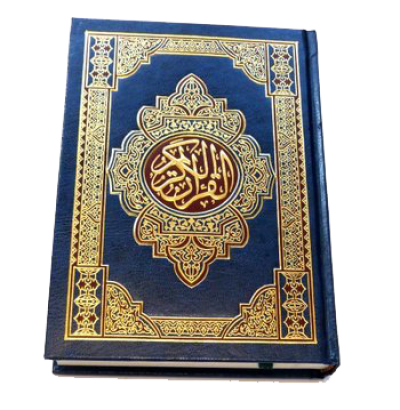Everyone of Us Will Come to Allaah Alone On The Day of Resurrection!
In The Name of Allaah, The Most Merciful, The Bestower of Mercy.
Allaah [The Most High] said:
إِن كُلُّ مَن فِي السَّمَاوَاتِ وَالْأَرْضِ إِلَّا آتِي الرَّحْمَٰنِ عَبْدًا
لَّقَدْ أَحْصَاهُمْ وَعَدَّهُمْ عَدًّا
وَكُلُّهُمْ آتِيهِ يَوْمَ الْقِيَامَةِ فَرْدًا
There is none in the heavens and the earth but comes unto the Most Beneficent (Allah) as a slave. Verily, He knows each one of them, and has counted them a full counting. And everyone of them will come to Him alone on the Day of Resurrection. [19:93-95]
[وَكُلُّهُمْ آتِيهِ يَوْمَ الْقِيَامَةِ فَرْدًا – And everyone of them will come to Him alone on the Day of Resurrection]; without children, wealth and helpers – nothing with him [i.e. the person –male and female] except his (or her) deeds, so Allaah will recompense him (or her) and give him (her) a full account. And if [his or her deeds are] good, [he or she receives) good, and if [his or her deeds are] evil, [he or she receives] evil, just as Allaah (The Most High) said: [وَلَقَدْ جِئْتُمُونَا فُرَادَىٰ كَمَا خَلَقْنَاكُمْ أَوَّلَ مَرَّةٍ – And truly you have come unto Us alone (without wealth, companions or anything else) as We created you the first time. [6:94] [Ref 1]
What Are Righteous Deeds
Imaam Shanqeetee [rahimahullaah) said: Indeed, the great Qur’aan has clarified that a righteous deed is that which accomplishes three affairs, and when one of them is not present its performer will not be benefitted on the day of Judgement.
The first affair: The (deed) has to be accordance with what the Messenger (sallal-laahu-alayhi wasallam) was sent with. That is because Allaah (The Most High) stated: [ وَمَا آتَاكُمُ الرَّسُولُ فَخُذُوهُ وَمَا نَهَاكُمْ عَنْهُ فَانتَهُوا – And whatsoever the Messenger (Muhammad) gives you, take it, and whatsoever he forbids you, abstain (from it)]. [Soorah Al-Hashar: Ayah: 7]
Allaah (The Most High) said: [مَّن يُطِعِ الرَّسُولَ فَقَدْ أَطَاعَ اللَّهَ – He who obeys the Messenger (Muhammad), has indeed obeyed Allah]. [Nisaa: Ayah: 80]
Allaah (The Most High) said: [ قُلْ إِن كُنتُمْ تُحِبُّونَ اللَّهَ فَاتَّبِعُونِي – Say (O Muhammad to mankind): ‘If you (really) love Allah then follow me].’[Aal Imraan: Ayah: 31]
Allaah (The Most High) said: [أَمْ لَهُمْ شُرَكَاءُ شَرَعُوا لَهُم مِّنَ الدِّينِ مَا لَمْ يَأْذَن بِهِ اللَّهُ – Or have they partners with Allah (false gods), who have instituted for them a religion which Allah has not allowed. [Soorah Ash-Shooraa: Ayah: 21]
The second affair: The (deed) is to be carried out sincerely for the sake of Allaah. That is because Allaah (The Most high) stated: [وَمَا أُمِرُوا إِلَّا لِيَعْبُدُوا اللَّهَ مُخْلِصِينَ لَهُ الدِّينَ – And they were commanded not, but that they should worship Allah, and worship none but Him Alone (abstaining from ascribing partners to Him)]. [Soorah Al-Bayyinah: Ayah: 5]
Allaah (The Most High) said:
[قُلْ إِنِّي أُمِرْتُ أَنْ أَعْبُدَ اللَّهَ مُخْلِصًا لَّهُ الدِّينَ
وَأُمِرْتُ لِأَنْ أَكُونَ أَوَّلَ الْمُسْلِمِينَ
قُلْ إِنِّي أَخَافُ إِنْ عَصَيْتُ رَبِّي عَذَابَ يَوْمٍ عَظِيمٍ
قُلِ اللَّهَ أَعْبُدُ مُخْلِصًا لَّهُ دِينِي
Say (O Muhammad): ‘Verily, I am commanded to worship Allah (Alone) by obeying Him and doing religious deeds sincerely for Allah’s sake only and not to show off, and not to set up rivals with Him in worship; “And I am commanded (this) in order that I may be the first of those who submit themselves to Allah (in Islam) as Muslims.” Say (O Muhammad): “Verily, if I disobey my Lord, I am afraid of the torment of a great Day.” Say (O Muhammad) “Allah Alone I worship by doing religious deeds sincerely for His sake only and not to show-off, and not to set up rivals with Him in worship.” [Soorah Az-Zumar: Ayah: 11-14]
The third affair: The (deed) has to be founded upon a sound creed. Allaah (The Most High) said: [وَمَن يَعْمَلْ مِنَ الصَّالِحَاتِ وَهُوَ مُؤْمِنٌ – And he who works deeds of righteousness, while he is a believer (in Islamic Monotheism)]. Therefore, Allaah, (tied) the (deed of the doer and the condition of its acceptance), saying: ‘’While he (i.e. performer) is a believer’’.[Soorah Taahaa: Ayah: 112]
And (The Most High) stated regarding the deeds of those who [have no belief in Allaah and His Messenger (sallal-lal-laahu-alayhi-wasallam)]:
وَقَدِمْنَا إِلَىٰ مَا عَمِلُوا مِنْ عَمَلٍ فَجَعَلْنَاهُ هَبَاءً مَّنثُورًا
And We shall turn to whatever deeds they (disbelievers, polytheists, sinners, etc.) did, and We shall make such deeds as scattered floating particles of dust.’’ [Soorah Al-Furqaan: Ayah: 23]
And Allaah (The Most High) said: [أُولَٰئِكَ الَّذِينَ لَيْسَ لَهُمْ فِي الْآخِرَةِ إِلَّا النَّارُ ۖ وَحَبِطَ مَا صَنَعُوا فِيهَا وَبَاطِلٌ مَّا كَانُوا يَعْمَلُونَ – They are those for whom there is nothing in the Hereafter but Fire; and vain are the deeds they did therein. And of no effect is that which they used to do. [Soorah HUD: Ayah: 16]. And other than it from the Aayaat (of the Qur’aan) [2]
[1] [An Excerpt from Tayseer Al-Kareem Ar-Rahmaan Fee Tafseer Kalaam Al-Mannaan. slightly paraphrased]
[2] An Excerpt from Al-Ismaamu Deenu Kaamilu page: 7. slightly paraphrased]




